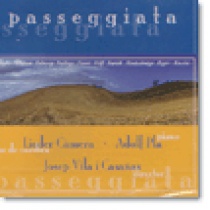He studied with Riemann (1890-95) in Munich and Wiesbaden (where his drinking habits began); in 1901 he settled in Munich, and in 1907 he moved to Leipzig to take a post as professor of composition at the university, though he was also active internationally as a conductor and pianist. He was appointed conductor of the court orchestra at Meiningen in 1911 and in 1915 moved to Jena.
During a composing life of little more than 20 years, he produced a large output in all genres, nearly always in abstract forms. He was a firm supporter of ’absolute’ music and saw himself in a tradition going back to Bach, through Beethoven, Schumann and Brahms. his organ music, though also affected by Liszt, was provoked by that tradition. Of his orchestral pieces, his symphonic and richly elaborate Hiller Variations and Mozart Variations are justly remembered; of his chamber music the lighter-textured trios have retained a place in the repertory, along with some of the works for solo string instruments. His late piano and two-piano music places him as a successor to Brahms in the central German tradition. He pursued intensively, and to its limits, Brahms’s continuous development and free modulation, often also invoking, like Brahms, the aid of Bachian counterpoint: Many of his works are in variation and fugue forms; equally characteristic is a great energy and complexity of thematic growth.
During a composing life of little more than 20 years, he produced a large output in all genres, nearly always in abstract forms. He was a firm supporter of ’absolute’ music and saw himself in a tradition going back to Bach, through Beethoven, Schumann and Brahms. his organ music, though also affected by Liszt, was provoked by that tradition. Of his orchestral pieces, his symphonic and richly elaborate Hiller Variations and Mozart Variations are justly remembered; of his chamber music the lighter-textured trios have retained a place in the repertory, along with some of the works for solo string instruments. His late piano and two-piano music places him as a successor to Brahms in the central German tradition. He pursued intensively, and to its limits, Brahms’s continuous development and free modulation, often also invoking, like Brahms, the aid of Bachian counterpoint: Many of his works are in variation and fugue forms; equally characteristic is a great energy and complexity of thematic growth.
Publications (3)
Max RegerAll the products
Max Reger





